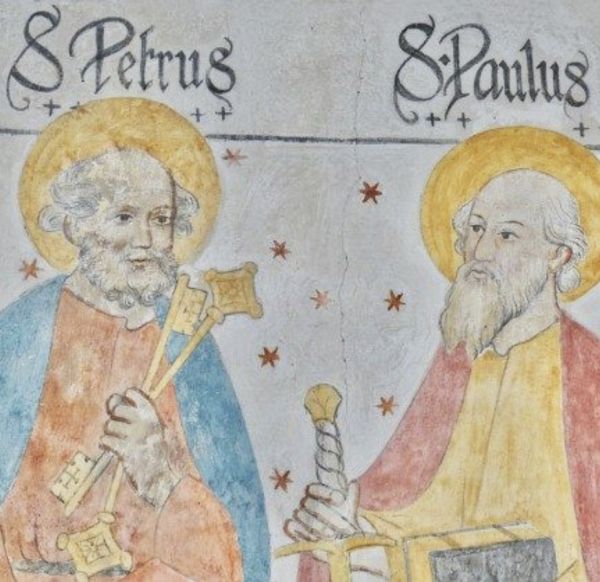Francis of Assisi had great respect for the Church, which he considered mother, holy, catholic, apostolic, Roman:
"At the beginning of my new life, when I separated from the world and my earthly father, the Lord placed his Word on the lips of the bishop of Assisi, that he might counsel me wisely in the service of Christ and give me comfort.
For this reason and for the other eminent qualities that I recognise [...] I want to love [...] and consider as my lords not only the bishops, but also the humble priests" (FF 1562).
Furthermore, the Sources attest how Francis went with eleven companions to the Pope's Curia to inform him of his new and original plan of life and to obtain confirmation of the Rule he had composed.
We read: "Seeing that the Lord was increasing his brothers [...] he addressed the eleven of the group:
"Brothers, I see that the merciful Lord wants to increase our community.
Let us therefore go to our mother, the holy Roman Church, and communicate to the supreme pontiff what the Lord has begun to do through us, in order to continue our mission, according to his will and dispositions' " (FF1455).
He was thus presented to the supreme pontiff who begged Francis to ask God if that kind of life really corresponded to his will.
In obedience to his request, the Poverello, after long prayer, confirmed the holy intention as coming from God, convincing the Pope with a parable received by divine inspiration.
He embraced the saint and approved the Rule.
"Having received the blessing from Innocent III, they went to visit the tombs of the Apostles [...] Then the man of God set out from Rome with his brothers, heading for the evangelisation of the world" (FF 1460-1462).
On the other hand Francis, praying in front of the Crucifix of the church of San Damiano "which was threatening ruin, old as it was [...] he heard with the ears of his body a voice descending towards him and saying three times:
«Francis, go and repair my house which, as you see, is all in ruins!» "(FF 1038).
This referring not only and not so much to the walls as "to that Church which Christ purchased with his Blood, as the Holy Spirit would have him understand and as he himself later revealed to the brothers".
(FF 1038).
Saints Peter and Paul Ap. (Mt 16:13-19)












